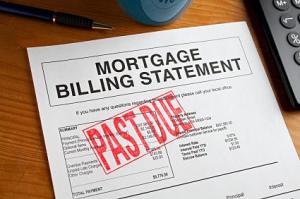Dear Liz: My husband and I are retired, with enough income from our pensions and Social Security to cover our modest needs, plus additional money in retirement accounts. We have owned our home for 35 years but refinanced several times and still have 15 years to go on a 20-year mortgage.
With rates so low, we were contemplating refinancing to a 15-year mortgage just for the overall savings on interest, but we started thinking about the fact that, at 67 and 72 years old, it’s unlikely that both of us will survive for another 15 years to pay off this loan. Since that’s the case, we’re now thinking about taking out a 30-year mortgage, with monthly payments $700 or $800 less than what we currently pay.
Our house is worth around 10 times what we owe on it, and if we had to move to assisted living we could rent it out at a profit, even with a mortgage. We also each have a life insurance policy sufficient to pay off the balance on the mortgage should one of us predecease the other.
I know that conventional wisdom says that we should pay off our mortgage as quickly as we can. But an extra $700 or $800 a month would come in handy! Am I missing something? Is this a bad idea?
Answer: Answer: Not necessarily.
Most people would be smart to have their homes paid off by the time they retire, especially if they won’t have enough guaranteed income from pensions and Social Security to cover their basic living expenses. Paying debt in retirement could mean drawing down their retirement savings too quickly, putting them at greater risk of ultimately running short of money.
Once people are in retirement, though, they shouldn’t necessarily rush to pay off a mortgage. Doing so could leave them cash poor.
You are in an especially fortunate position. Your guaranteed income covers your expenses, including your current mortgage, and you have a way to pay off the loan when that income drops at the first death. (The survivor will get the larger of the two Social Security checks. What happens with the pension depends on which option you chose — it may drop or disappear or continue as before.) Even with a mortgage, you have a large amount of equity that can be tapped if necessary.
So refinancing to a longer loan could make a lot of sense. To know for sure, though, you should run the idea past a fee-only, fiduciary financial planner who can review your situation and provide comprehensive advice.
 Today’s top story: Want a raise in 2021? You may not even need to ask for it. Also in the news: How to be effective with your generosity in 2020, how to prepare for student loan payments to restart in 2021, and what to do if you’re behind on your rent or mortgage.
Today’s top story: Want a raise in 2021? You may not even need to ask for it. Also in the news: How to be effective with your generosity in 2020, how to prepare for student loan payments to restart in 2021, and what to do if you’re behind on your rent or mortgage.  Today’s top story: Is my money safe in a bank during the COVID-19 crisis? Also in the news: Helping home buyers keep their distance with e-closings, what kinds of credit card relief are available during the pandemic, and how to save for retirement while on unemployment.
Today’s top story: Is my money safe in a bank during the COVID-19 crisis? Also in the news: Helping home buyers keep their distance with e-closings, what kinds of credit card relief are available during the pandemic, and how to save for retirement while on unemployment.